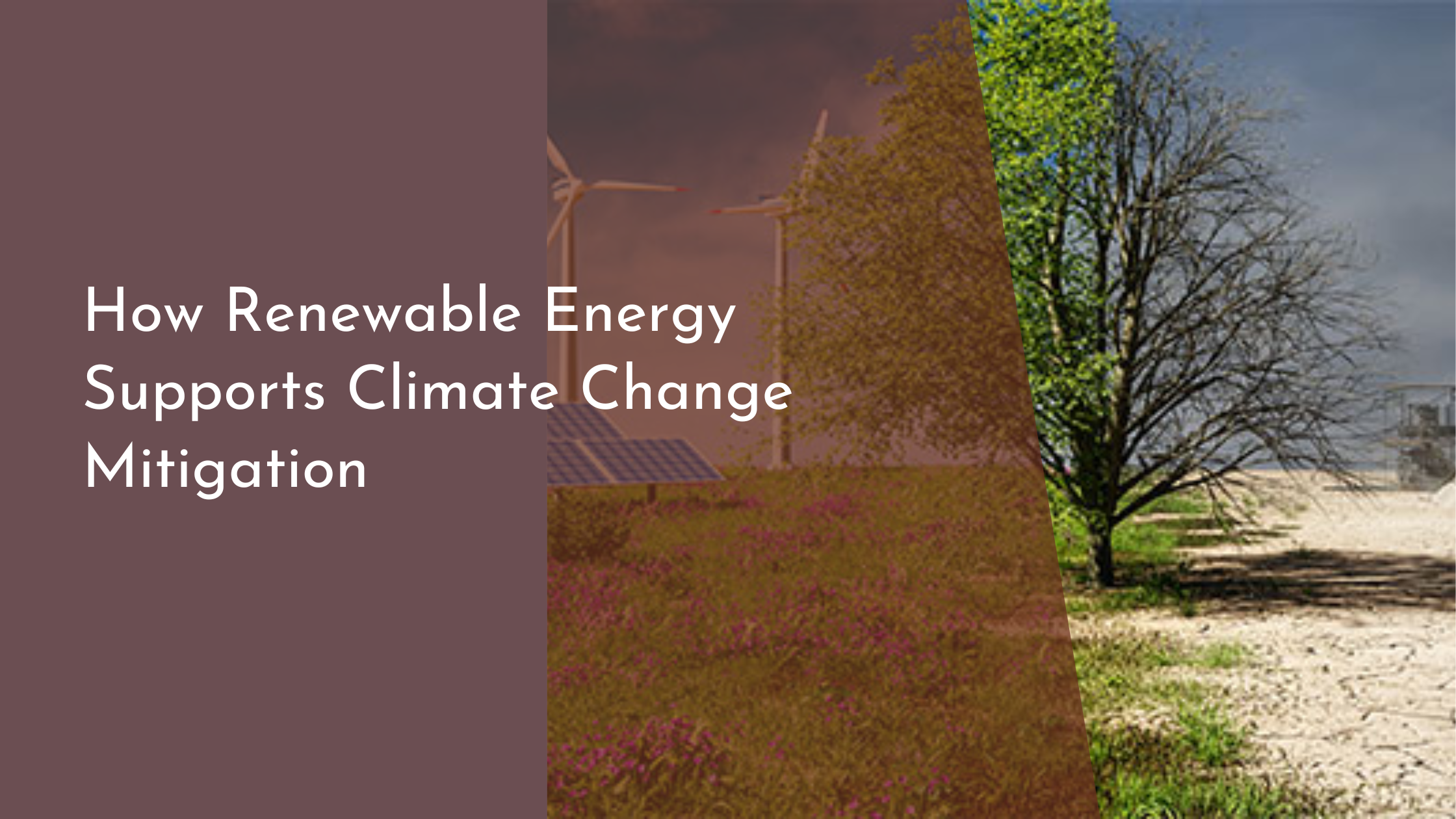How Renewable Energy Supports Climate Change Mitigation
In the face of accelerating climate change, the world is urgently seeking solutions to reduce greenhouse gas emissions and curb global warming. Renewable energy has emerged as a key player in this quest, offering a sustainable and efficient way to address the environmental challenges we face. By harnessing the power of natural resources, renewable energy not only cuts down carbon emissions but also paves the way for a cleaner, more sustainable future. This article explores how renewable energy supports climate change mitigation by shedding light on its role, types, benefits, and the promising road ahead.
Understanding the Role of Renewable Energy
Renewable energy is pivotal in the fight against climate change because it offers an alternative to fossil fuels, which are major contributors to global warming. Unlike coal, oil, and natural gas, renewable energy sources generate power without releasing large amounts of carbon dioxide and other harmful pollutants. By replacing conventional energy sources with renewables, we can significantly reduce the carbon footprint associated with energy production, which is one of the largest sources of emissions worldwide. Transitioning to renewable energy is not just about reducing emissions; it’s about transforming our energy systems to be more sustainable and resilient.
Moreover, renewable energy has the potential to democratize energy access, making it available to communities around the globe, including those in remote and developing areas. As renewable technologies become more cost-effective and widespread, they contribute to energy security and independence. This decentralization of energy sources not only strengthens national security but also reduces geopolitical tensions linked to fossil fuel resources. By leveraging renewable energy, societies can move towards a more equitable and stable energy landscape, which is crucial in the broader context of climate change mitigation.
Key Types of Renewable Energy Sources
Solar energy is one of the most abundant renewable sources, harnessing sunlight through photovoltaic cells to generate electricity. With the sun as its fuel, solar energy is an infinite source that doesn’t deplete over time, making it an extremely sustainable option. Technological advancements have significantly reduced the cost of solar panels, making solar energy more accessible to households and businesses alike. Additionally, solar power systems can be installed on rooftops, allowing for localized energy production and reduced transmission losses.
Wind energy, captured through turbines, is another essential renewable source. As wind turns the blades of a turbine, electricity is generated without any carbon emissions. Wind farms can be located both onshore and offshore, with offshore installations benefiting from stronger and more consistent winds. The scalability of wind energy—from small turbines for individual use to large-scale wind farms—makes it a versatile option in the renewable energy mix. Together, these types of renewable energy sources provide a robust framework for reducing reliance on fossil fuels and mitigating the impacts of climate change.
Benefits of Renewables in Climate Mitigation
One of the most significant benefits of renewable energy is its ability to drastically cut greenhouse gas emissions. By transitioning to renewable sources, we can significantly reduce the volume of carbon dioxide and other harmful pollutants released into the atmosphere. This reduction in emissions is crucial in slowing the pace of climate change and avoiding the severe consequences associated with global warming, such as rising sea levels, extreme weather events, and biodiversity loss.
In addition to environmental benefits, renewable energy also drives economic growth and job creation. The renewable energy sector has been a booming industry, providing jobs in manufacturing, installation, and maintenance of renewable energy infrastructure. As countries invest in renewable projects, they stimulate economic development and encourage technological innovation. This not only helps in the fight against climate change but also supports sustainable economic growth, creating a win-win situation for the planet and its inhabitants.
As we look towards the future, the promise of renewable energy shines brightly as a beacon of hope in our efforts to mitigate climate change. By embracing clean energy solutions, we can pave the way for a healthier planet and a more sustainable future for generations to come. The transition to renewables is not just an environmental imperative but also an opportunity to build a stronger, more resilient economy. With continued investment and innovation, renewable energy will play an increasingly crucial role in securing a cleaner, more equitable future for all.

